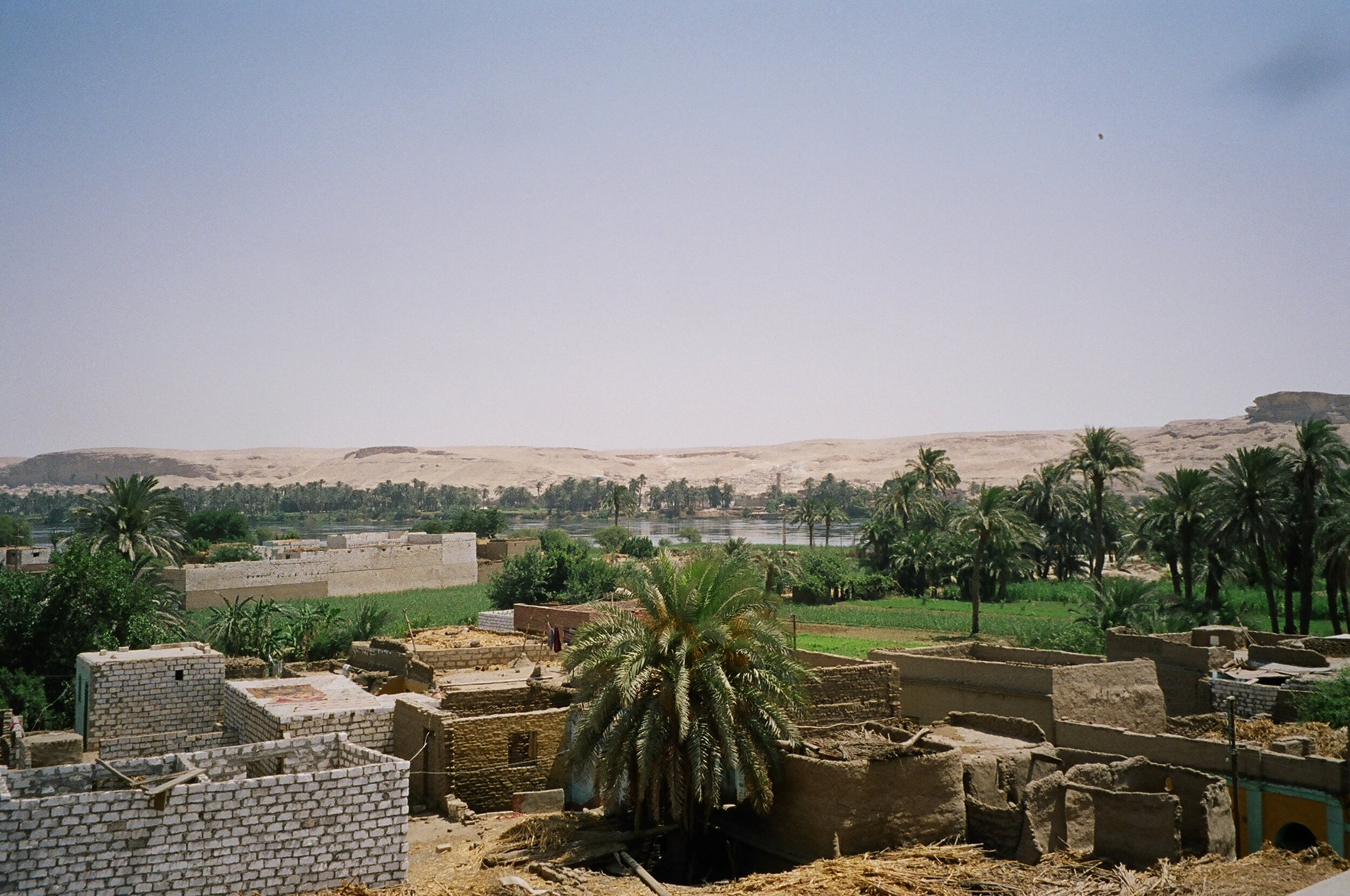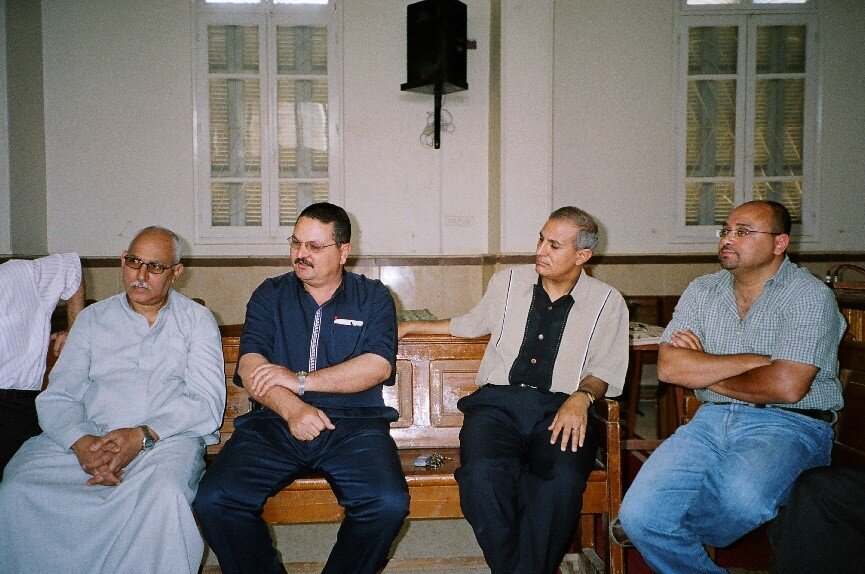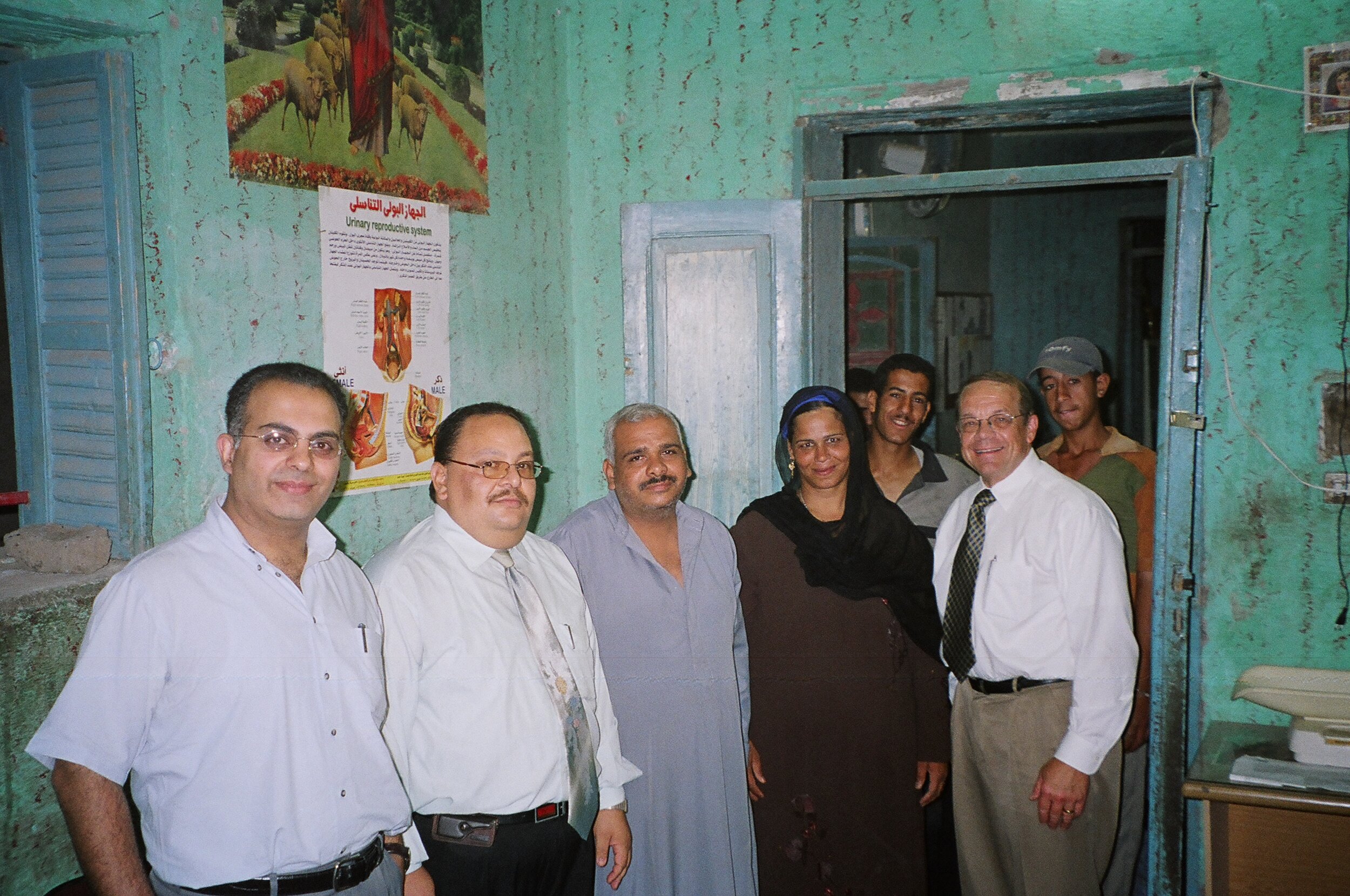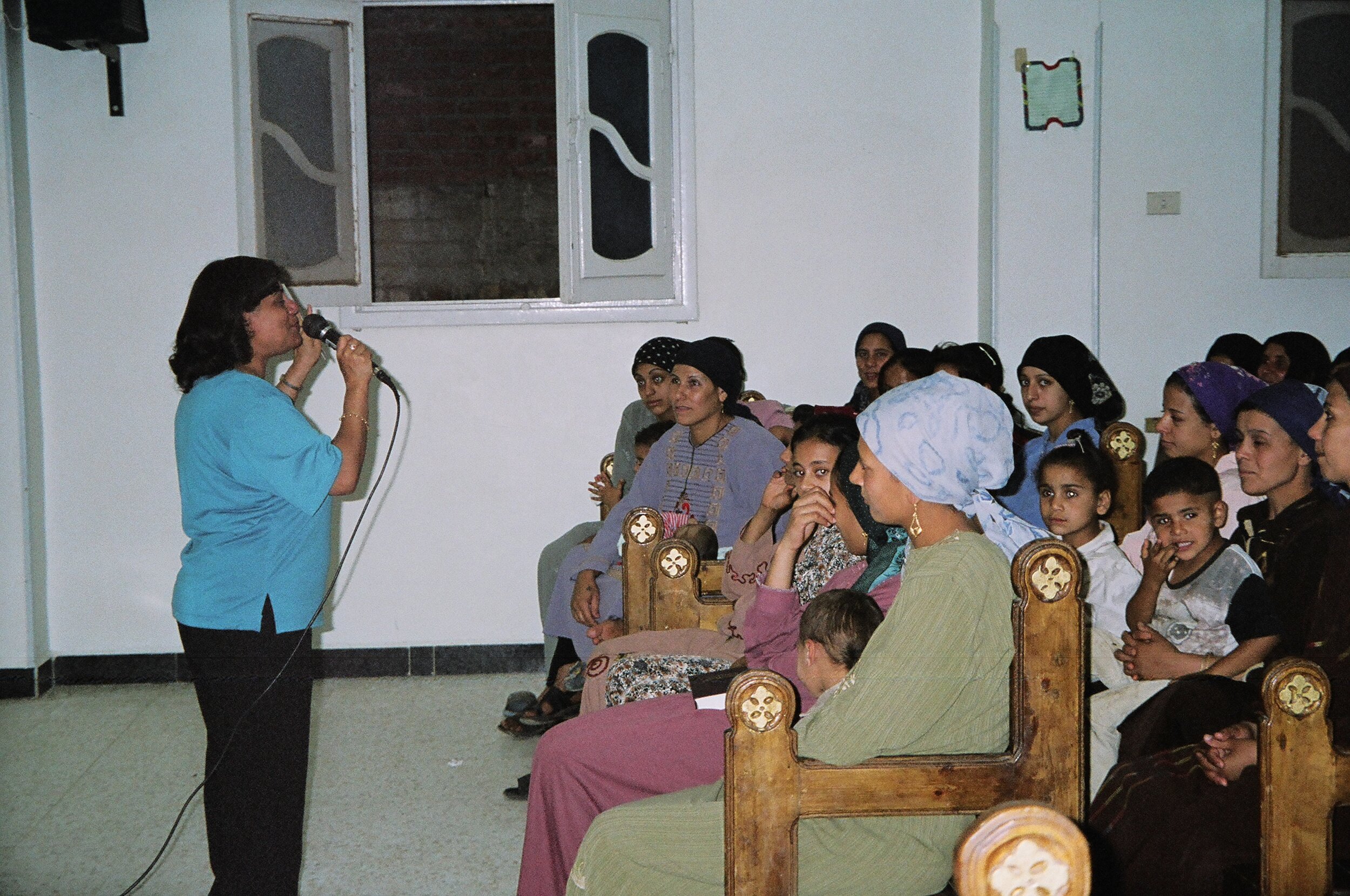The Lay Pastor Initiative
INSTALLMENT 11 OF THE HISTORY OF THE OUTREACH FOUNDATION IN EGYPT
by Jeff Ritchie
When the Outreach Foundation began its partnership with the Evangelical Theological Seminary in Cairo to stimulate a new vision for mission and evangelism within the Evangelical Presbyterian Church of Egypt, our goal was to support the Egyptian Church’s mission priorities. For the first few years of our relationship, our main focus was the Cairo Seminary with its long-term strategy of calling a professor of mission and evangelism and developing a Mission Department. We also were supporting new church developments in the areas around Cairo and in rural areas.
A greater immediate felt need of the Presbyterian Church in Egypt had come to our attention during our 2004 trip, namely, the lack of pastors in over 100 of the 300+ churches of the Presbyterian Church of Egypt. Most of these churches were in the rural areas of Middle and Upper Egypt. This lack was due to factors such as the exodus of rural people, especially young people, to the cities and the lack of adequate salary and/or housing for pastors who might otherwise consider a call to these churches.
During that trip, we also learned of plans to address this issue that were being developed by the Cairo Seminary and two of the ministry councils of the Egyptian Church. Their proposed Lay Pastor Initiative called for committed lay leaders to be given a year of training in theology and mission at the seminary and then to be sent as Lay Pastors to churches without a pastor. For three years they would labor to revitalize congregational life and to involve the church in community mission. Their salaries would be paid on a reducing scale by the Synod’s Pastoral and Outreach Ministries Council. As the church developed projects for community ministry, the Synod Council on Services and Development would offer grants and technical expertise. The Outreach Foundation was asked to provide scholarships for the training of the Lay Pastors at the Cairo Seminary. We were glad to join this initiative as a ministry partner, for it was our first mission partnership with the Church at the denominational (Synod) level.
By 2005 the plan was ready to be implemented. The presbyteries of the Synod recommended laypersons who dedicated themselves to this work. Dr. Sherif Salah oversaw their training at the Cairo Seminary. The first Lay Pastors finished their training in the spring of 2006 and were assigned to churches in the Minya and Mallawi Presbyteries of Middle Egypt.
We in The Outreach Foundation were eager to meet these dedicated people, and we had that opportunity during our June 2007 trip to Egypt. We met all the new Lay Pastors at a conference center, and we spent time with some of them at the churches where they were serving.
One of the Lay Pastors we met, Philip Karam, had been in the poultry business before answering a call to become a Lay Pastor. After his training, Philip and his wife, Hella, were assigned to the Sinarea Church in the Minia area. We found that their church was flourishing in worship and reaching out to the community through a pre-school and a health clinic. From the other lay pastors whom we met, we heard about health ministries, micro-loan projects, and other outreach ministries. In all the cases these churches were also being revitalized in ministry and growing in numbers.
An especially gratifying aspect of this Lay Ministry Initiative was the presence of staff from the Council for Services and Development as resource persons to the Lay Pastors and the churches they were serving. The Pastoral and Outreach Council was also faithful in its support for the salaries of these Lay Pastors. This was partnership at work inside of the Evangelical Presbyterian Church of Egypt.
After a few years, the Synod and the Seminary evaluated the Initiative. They noted that the churches served by the lay pastors had been revitalized and had brought hope to their communities through education, health, and development ministries. There was, however, a feeling in the culture of the Egyptian Church that the Lay Pastors were not full pastors; that is, they were not clergy.
As a result, the Lay Pastor Initiative ended as such, but it produced some unexpected and positive results. For example, nineteen of the forty-four lay pastors returned to seminary after their three years of service and became ordained in the Evangelical Presbyterian Church of Egypt. A second fruit was a revised plan to revitalize the churches without pastors which was developed in 2012-2013. This plan, which was part of an overall vision for the Pastoral and Outreach Ministries Council, called for ordained clergy to be sent to these churches as missional pastors, again with proper support.
The Outreach Foundation is humbly grateful to have been part of this initiative of the Evangelical Presbyterian Church of Egypt. Through it, we have seen how the Church has learned through trial and error how to be more effective in mission in rural Egypt. In a later chapter, we will share how the Mission Initiative has continued to expand, even beyond Egypt.




